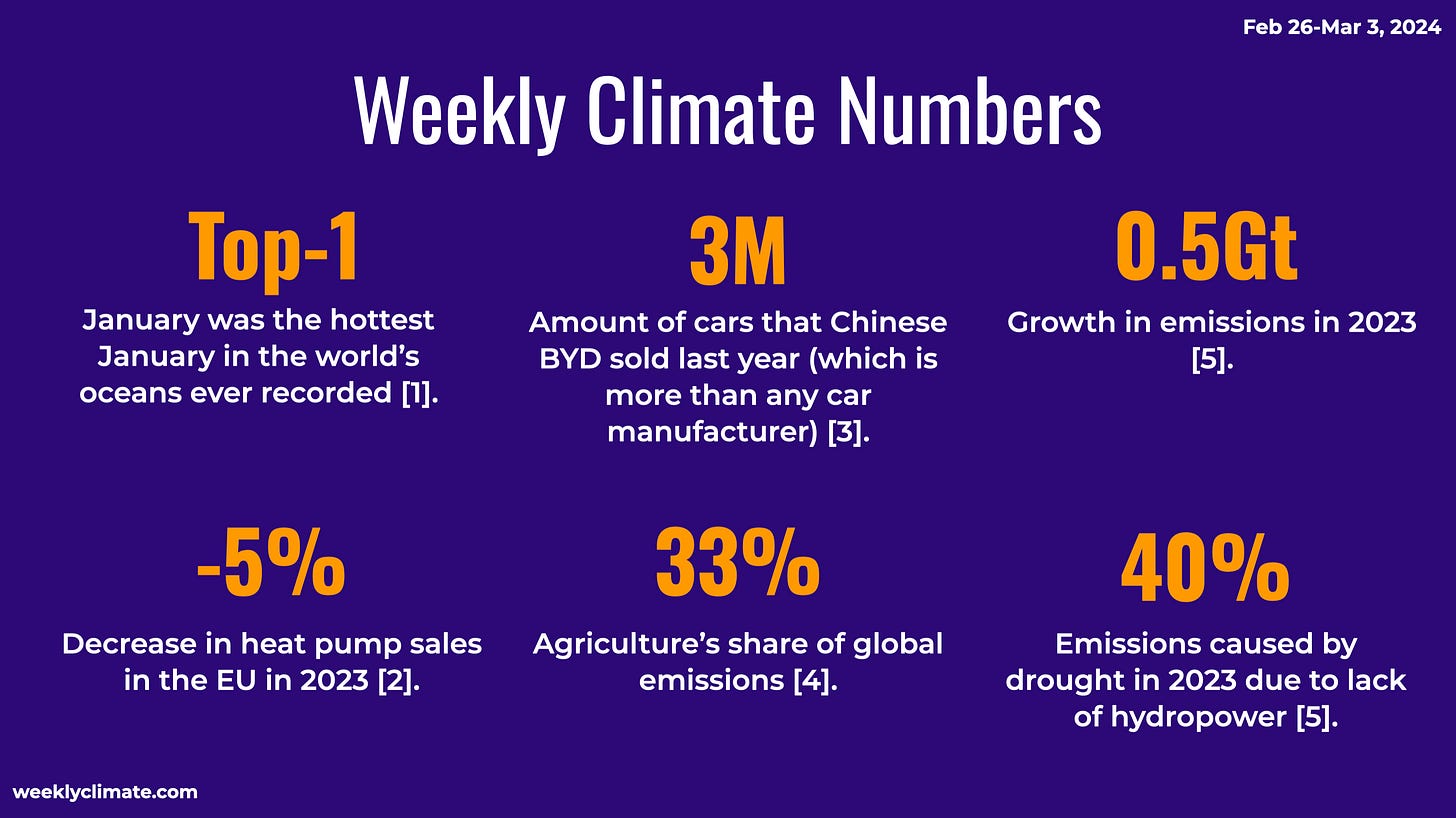[Feb 26-Mar 3'24] Misleading ESG ratings
Meat misinformation, some EU countries hitting 2030 targets, misleading ESG advertising ratings and plastic recycling is a scam.
Welcome to this week’s edition of The Weekly Climate 🎉
References: [1], [2], [3], [4] and [5].
‼️News you can’t miss
Here’s one important scary/bad (🙀), good (😻), interesting (😼) and fossil (💩) news item.
🙀 Meat uses misinformation like our fossil fuel fiends
😻 Some EU countries already hitting 2030 sustainability targets
😼 Investors highlight blind spots in ESG ratings for advertising companies working with big polluters
👩⚕️ Status: Climate & Science
Let’s look at how we’re doing this week!
[#oceantemperature] — Ocean temperatures are causing concern among scientists, with record-breaking warmth in the North Atlantic and a lack of sea ice in the Antarctic. Global warming from fossil fuel emissions is driving the increase in temperatures, and reductions in pollution and changes in weather patterns may be contributing factors. The warmer waters could lead to a more intense hurricane season and have impacts on Arctic sea ice and global weather patterns. The long-term implications of these temperature changes are still uncertain.
📰 The 7 Grand Challenges
⚡️Decarbonize Electricity
Clean electricity is the one do-or-die challenge we must solve.
[#IEA] — According to a report by the International Energy Agency (IEA), energy-related emissions rose by 410 million metric tons in 2023, moving in the opposite direction of the goals set by the Paris climate agreement. Climate change also made it more difficult to generate renewable energy, with severe drought causing a shortfall in hydropower. However, the IEA remains confident in the growth of clean energy projects, stating that without them, carbon dioxide pollution would have been three times higher.
[#nuclear] — Many people are confused about the low-carbon nature of nuclear power, according to survey data. While most people recognize that renewables like solar and wind are low-carbon, less than half of the public knows that nuclear power is also low-carbon. Older people and men are more likely to understand this concept. The confusion may stem from the association of nuclear power with fossil fuels and the lack of understanding about its emissions. Clear communication is needed to educate the public about the low-carbon benefits of nuclear power. While 100% true, current generation of nuclear power plants does have the obvious issue with waste, which in the era of climate change might be more difficult to handle. A federal report warns that climate change could disturb nuclear waste buried in Greenland and the Marshall Islands, potentially spreading contamination and posing health risks. The report highlights the impact of nuclear weapon tests during the Cold War, which displaced and sickened Indigenous people and disrupted traditional food practices. The authors recommend improved communication and environmental remediation efforts to address the risks posed by U.S. nuclear waste.
[#windrecycling] — The U.S. Department of Energy has announced 20 winners of its Wind Turbine Materials Recycling Prize, aiming to develop a cost-effective and sustainable recycling industry for wind turbine components. Among these components are magnets made with rare-earth elements, which are currently not being recycled. The prize winners are exploring novel and promising recycling solutions, including cleaner and less energy-intensive approaches, to extract and reuse rare-earth magnets from spent wind turbines. The goal is to advance these technologies towards commercialization and address the potential future supply crunch of rare-earth elements.
🏘 Reduce impact of urban and rural areas
Lowering the impact of urban and rural areas.



